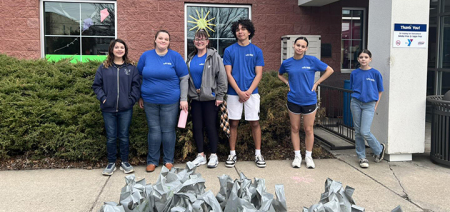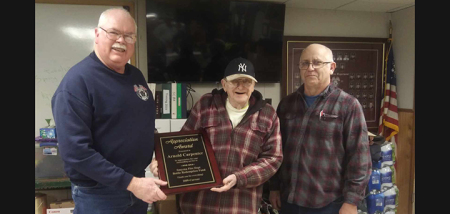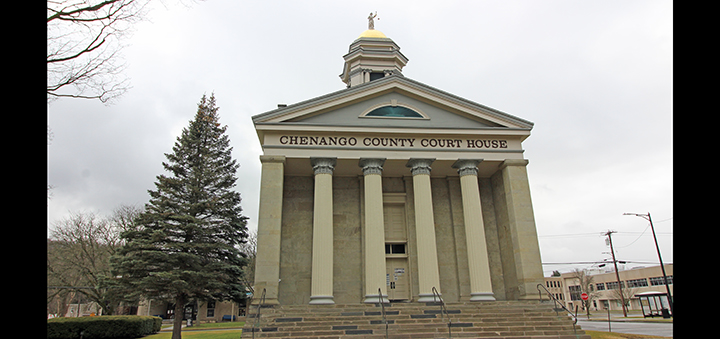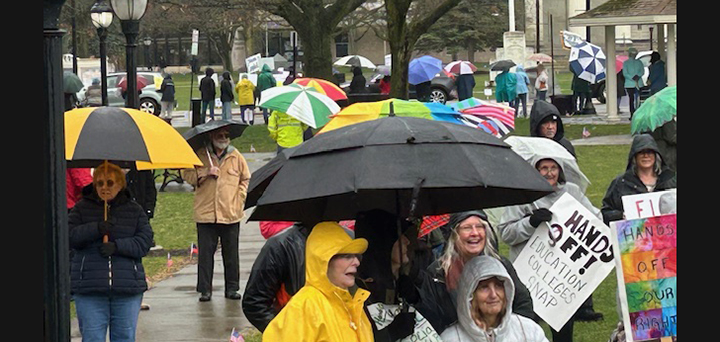Tilting At Windmills: Enoch Arden
Published:
November 8th, 2024
By:
Shelly Reuben

I don’t know when I was introduced to “Enoch Arden” by Alfred Lord Tennyson (1809 – 1892), but I woke up this morning thinking about the poem and feeling infinitely privileged and almost TOO lucky to know it. Meanwhile, I was also feeling guilty that while I have it as a reference point in my head for nobility and lost love, many of you do not.
Ergo, I have made an executive decision to introduce Enoch Arden to all of you so that you may know why this is such a great story. But first, a little (very little; I promise) about Tennyson. He was Poet Laureate in England during most of Queen Victoria’s rule. His poems were about romantic love, friendship, loss, chivalry, war, Arthurian legends, and so much more. He was happily married and died at age 84.
Of course, as the decades progressed and people became less lyrical and more cynical, his poetry lost popularity. But even though many of you may think that you are not familiar with Tennyson’s work, you will recognize lines from some of his more popular poems. Such as:
““Tis better to have loved and lost than never to have loved at all.” ~ “Sometimes the heart sees what's invisible to the eye.” ~ “Theirs not to reason why, Theirs but to do and die.” ~ “To strive, to seek, to find, and not to yield.” ~ “The mirror crack'd from side to side; ‘The curse is come upon me,’ cried The Lady of Shalott.’” ~ “Brief is life but love is long.” ~ “The shell must break before the bird can fly.”
Before telling you more about Enoch Arden, I’ll give you a sense of how many movies, books, dramas, etc. were inspired by his misfortunes. This is an incomplete list, but … “Enoch Arden” a film by D. W. Griffith; “Too Many Husbands” a movie starring Fred MacMurray; “My Favorite Wife” a movie starring Cary Grant; “Taken by the Flood” a book by Agatha Christie; “Tomorrow is Forever” a movie starring Claudette Colbert; “Move Over Darling” a movie starring Doris Day. And more recently, “Cast Away” a movie starring Tom Hanks.
Now, I’ll tell you about our sad hero.
Enoch grew up playing on a beach with Annie Lee “The prettiest little damsel in the port, and Philip Ray the miller’s only son.” Both boys were in love with Annie. Foreshadowing problems ahead, when they played “at keeping house” Enoch would proclaim, “’This is my house and this is my little wife.’ And Philip would announce, ‘Mine too’.”
As they grew older, Annie cared for both suitors, but she loved only Enoch, whose sole ambition was “To hoard all savings to the uttermost, to purchase his own boat, and make a home for Annie.” And so, the two got married, and “merrily rang the bells, and merrily ran the years, seven happy years … of health and competence, and mutual love and honorable toil.”
Then things start to go wrong. One day when Enoch was “clambering on a mast in harbor, by mischance he slipt and fell: A limb was broken.” No longer able to ply his trade, Enoch feared poverty for his beloved family. Fortunately, the master of a ship where he once worked heard about Enoch’s plight and offered him a job as a boatswain. Good news: He would be making money for his family. Bad news: He would be away from home, possibly for years on end.
Although Enoch was happy about this change of fortunes, Annie, terrified of losing him forever, “Besought him, supplicating, if he cared for her or his dear children, not to go.”
Enoch, however, was cheerfully resolute. “Annie, this voyage by the grace of God will bring fair weather yet to all of us … I'll be back, my girl, before you know it.” In order to ensure his family’s welfare while he was gone, Enoch sold his boat and “fit their little streetward sitting-room with shelf and corner for the goods and stores” so that she could earn money by selling necessities to seamen and their families.
But Annie was inconsolable, “O Enoch, you are wise; And yet for all your wisdom well know I that I shall look upon your face no more."
Enoch set off, at first meeting with success, confident that his family was well taken care of. But Annie “throve not in her trade, not being bred to barter … for more than once, in days of difficulty and pressure, had she sold her wares for less than what she gave in buying what she sold.”
Meanwhile, all of Enoch’s initial good luck on his voyage turned bad. As his ship headed home, “there came a Storm, such as drove her under moonless heavens till hard upon the cry of `breakers' came the crash of ruin.” Only Enoch and three others survived, drifting “Half the night, buoy'd upon floating tackle and broken spars” until they found themselves on an island rich in “human sustenance, soft fruitage, mighty nuts, and nourishing roots.” The castaways built a thatched hut, and “dwelt with eternal summer, ill-content.” Three years later, the youngest of the survivors died. Not long after, Enoch’s second companion died, leaving him utterly alone.
Years pass, and in his solitude, the only thing keeping Enoch Arden alive were his thoughts of home: “The babes, their babble, Annie, the small house, the climbing street.” Meanwhile, having made a disaster of the shop that Enoch set up for her, Annie was near destitution. But she still loved her husband, and she still desperately longed for his return.
At this point, Philip (the miller’s son), who had always loved her, tenuously approached and said, “O Annie, it is beyond all hope, against all chance, that he who left you ten long years ago should still be living; well then — let me speak: I grieve to see you poor and wanting help … I wish you for my wife. I fain would prove a father to your children: I do think they love me as a father: I am sure that I love them as if they were mine own.”
Annie responded “Can one live twice? Can you be ever loved as Enoch was?” But she promises Philip that if Enoch has not returned within a year, she will marry him. After the passing of those 12 months, however, she is still reluctant to marry. Six more months pass, and she has a dream in which she sees Enoch “under a palm tree.” But instead of interpreting the dream that he was alive, she believes it means that he was dead and in heaven, and she finally agrees to marry Philip.
Life sometimes being cruel in its irony, a ship seeking to replenish its supply of fresh water lands on Enoch’s Island, and its seamen see the castaway – “long-bearded solitary … looking hardly human, strangely clad, muttering and mumbling, idiot-like.” Feeling sorry for him, they take him aboard and deliver him to the home port from which he had sailed so many years ago.
Since he looks nothing like the healthy young man he had once been, it is easy for Enoch to conceal his identity. With carefully worded questions, he learns about Annie and about Philip’s “long wooing her, her slow consent, and marriage, and the birth of Philip's child.” Unable to reconcile himself to such a cruel reality, Enoch’s feet retrace their steps to “the home where Annie lived and loved him, and his babes in those far-off seven happy years were born; But finding neither light nor murmur there (A bill of sale gleam'd thro' the drizzle) crept still downward thinking `dead or dead to me!'”
Still unable to relinquish his dreams, Enoch sneaks up to the window of the house where she now lives and looks inside. “Now when the dead man come to life beheld his wife his wife no more, and saw the babe hers, yet not his, upon the father's knee, and all the warmth, the peace, the happiness, and his own children tall and beautiful, and him, that other, reigning in his place, Lord of his rights and of his children's love.”
Which was about all that Enoch could bear. He then staggers away from the house, falls to the ground and prays, “Uphold me, Father, in my loneliness … give me strength not to tell her, never to let her know. Help me not to break in upon her peace.” For a long moment, Enoch “lay tranced; but when he rose and paced back toward his solitary home again, all down the long and narrow street he went beating it in upon his weary brain, as tho' it were the burthen of a song, `Not to tell her, never to let her know.'”
The poem goes on about Enoch’s sad and solitary end about a year later when “So past the strong heroic soul away.”
In most of the movies inspired by “Enoch Arden,” instead of the returned sailor fading into the sunset, he inserts himself into his wife’s new marriage, and competes with her second husband to reclaim her in his life.
However, if that had been the decision of the loving husband and father in Tennyson’s poem, Enoch Arden’s noble choice never would have become such a big part of our cultural memory, and his sad fate never would have broken our hearts.
Copyright © Shelly Reuben, 2024. Shelly Reuben’s books have been nominated for Edgar, Prometheus, and Falcon awards. For more about her writing, visit www.shellyreuben.com
Author: Shelly Reuben - More From This Author
Comments






